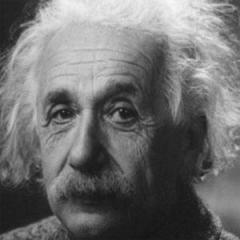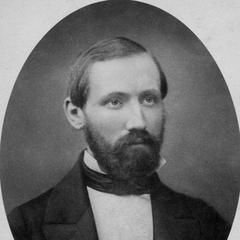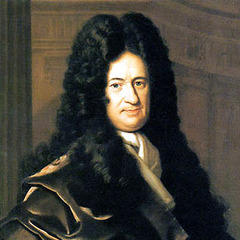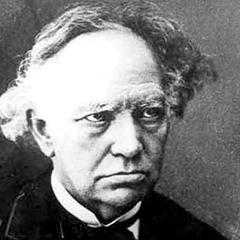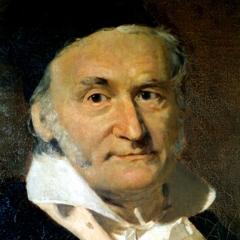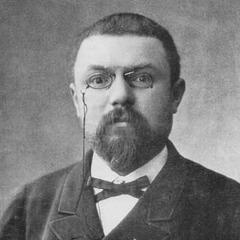Henri Poincare Quotes - Page 2
Quotes about:-
-
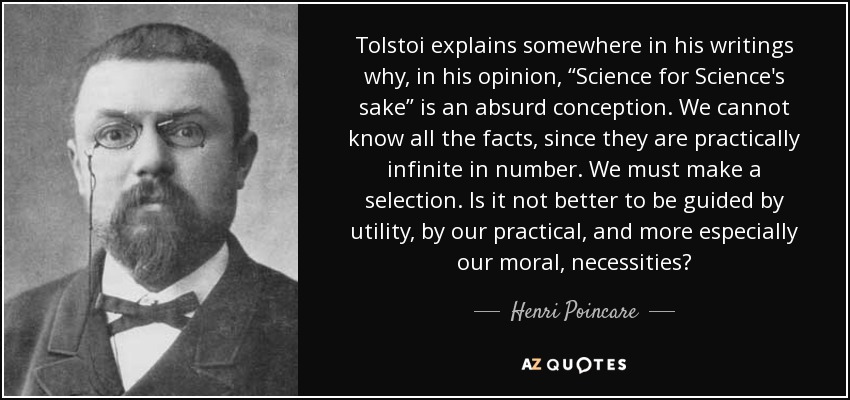 Tolstoi explains somewhere in his writings why, in his opinion, “Science for Science's sake” is an absurd conception. We cannot know all the facts, since they are practically infinite in number. We must make a selection. Is it not better to be guided by utility, by our practical, and more especially our moral, necessities?
Tolstoi explains somewhere in his writings why, in his opinion, “Science for Science's sake” is an absurd conception. We cannot know all the facts, since they are practically infinite in number. We must make a selection. Is it not better to be guided by utility, by our practical, and more especially our moral, necessities?
-
Henri Poincare
- Born: April 29, 1854
- Died: July 17, 1912
- Occupation: Mathematician
- Cite this Page: Citation

